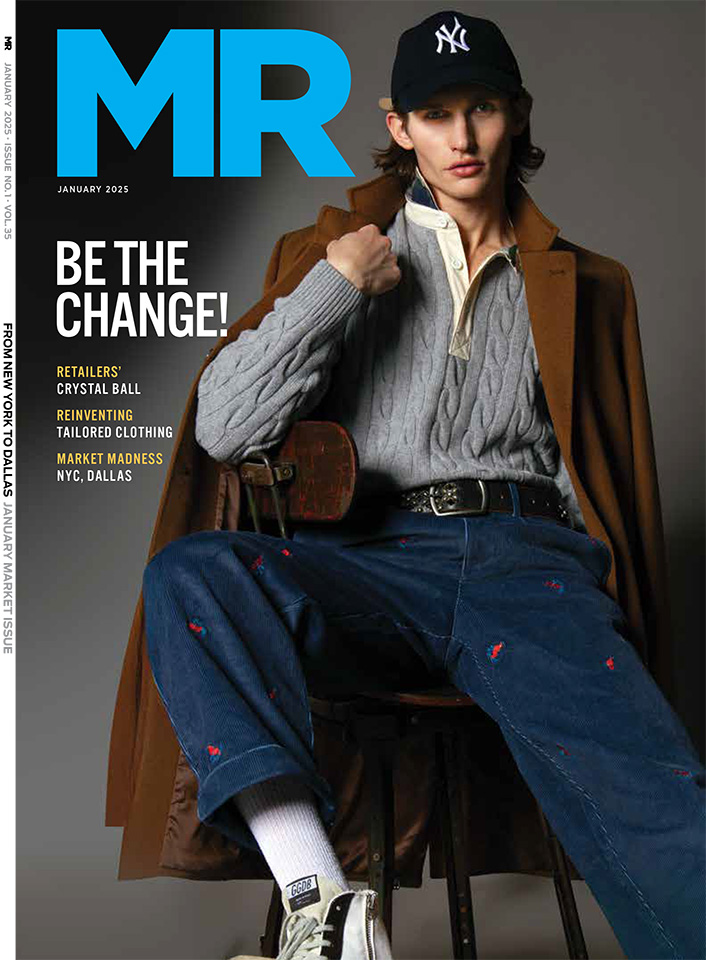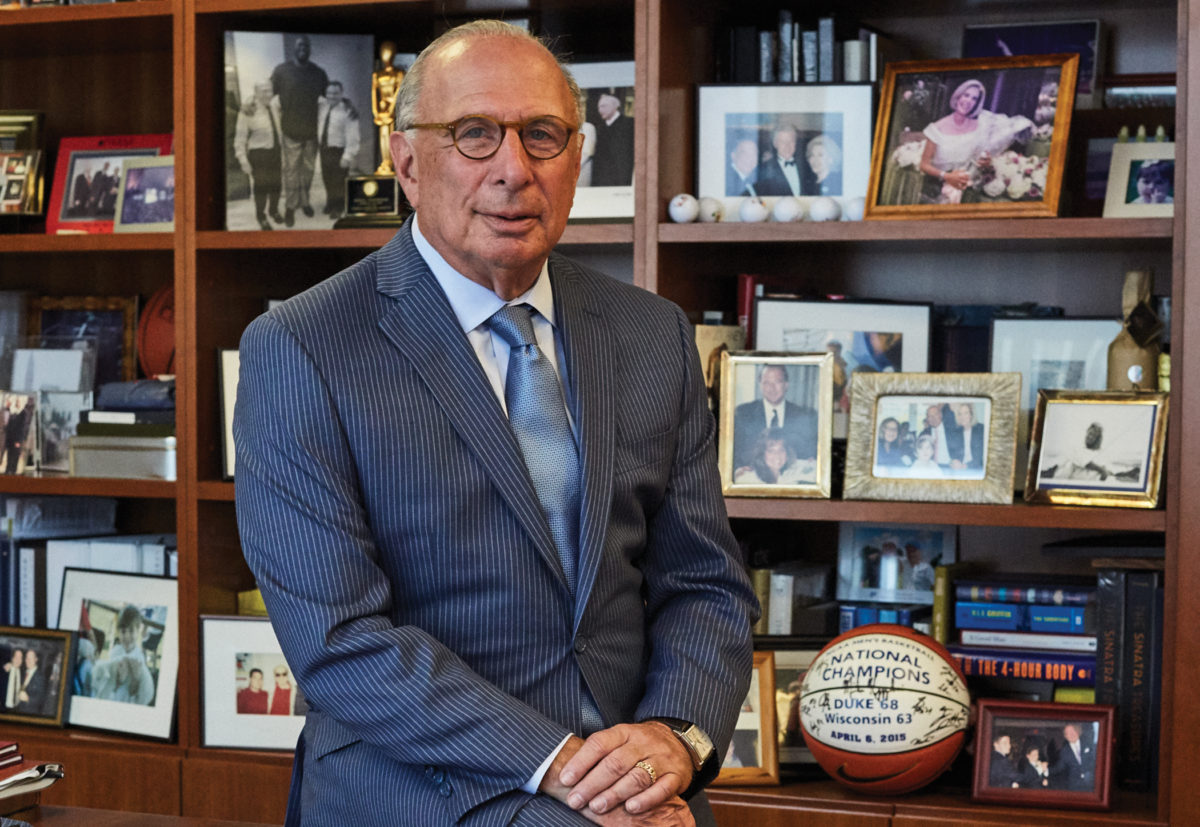MASTER OF MENSWEAR: RONNY WURTZBURGER
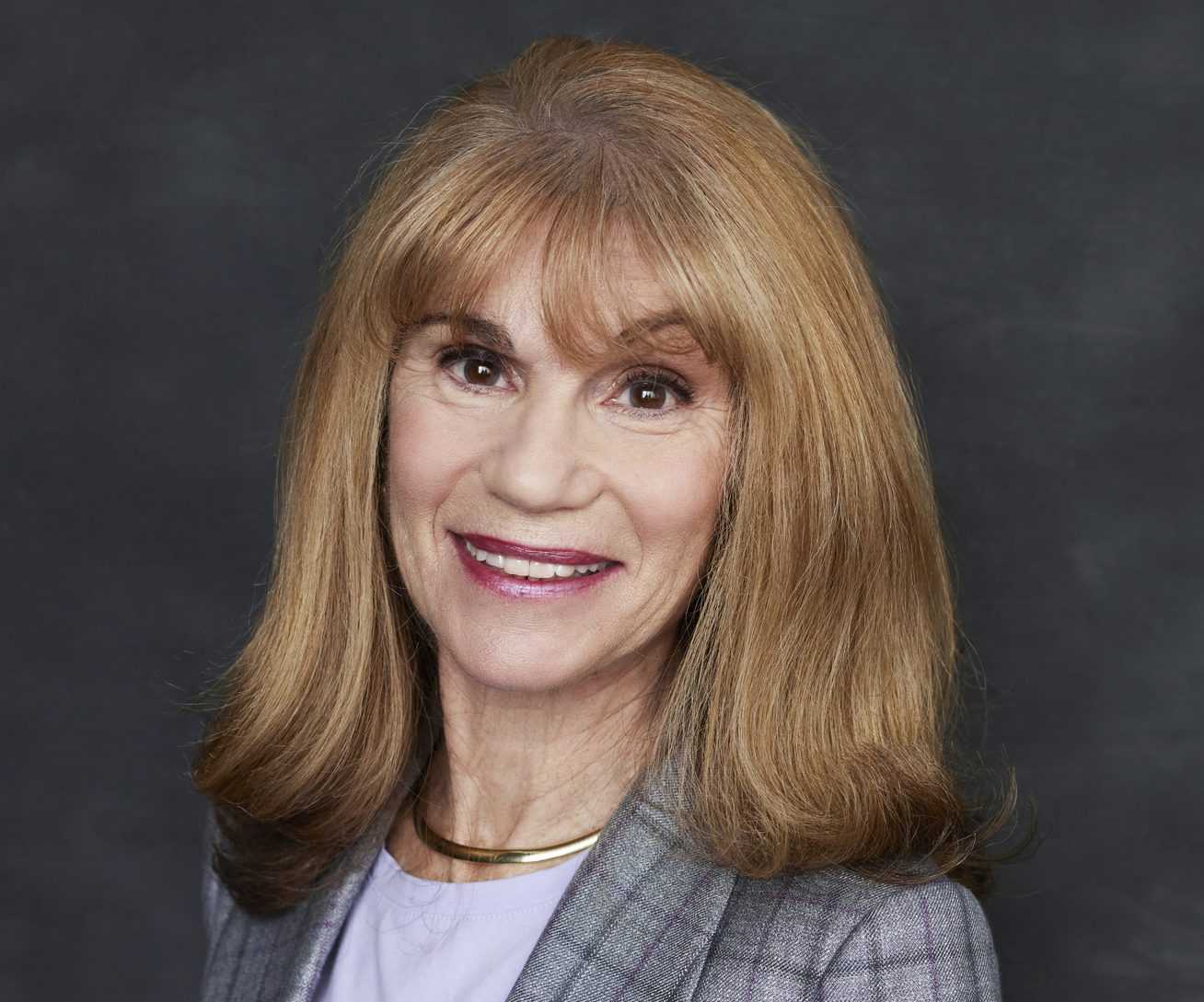
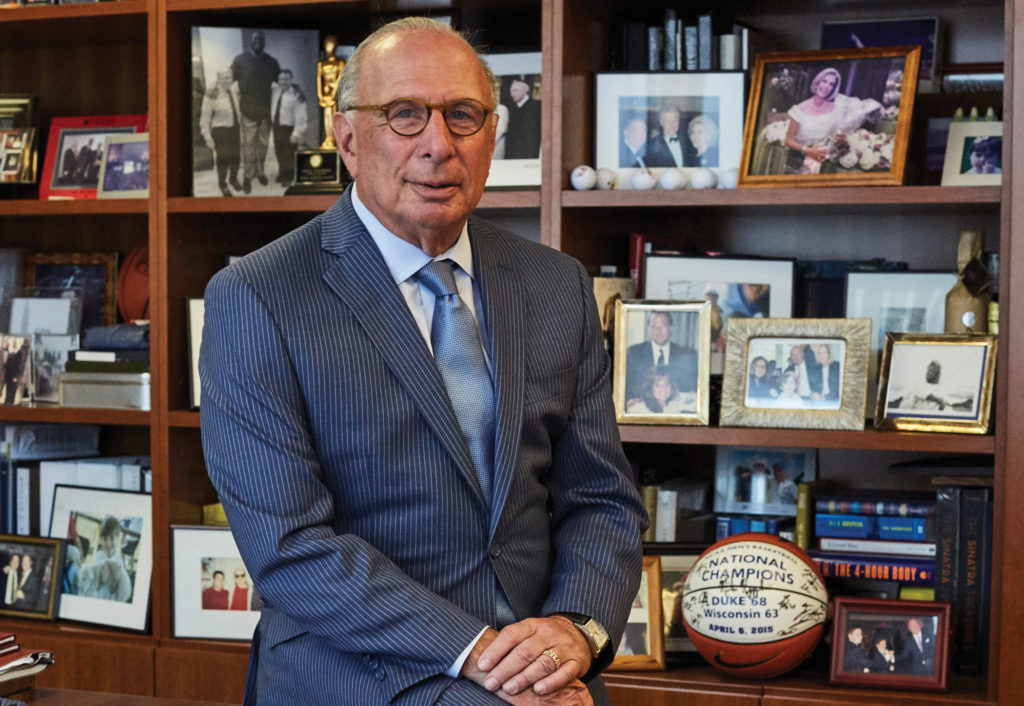
There are many great salesmen in the men’s clothing industry but only one Ronny Wurtzburger, the well-loved, highly respected, funny, smart, generous, gregarious industry godfather with a passion for the tailored clothing business second to none.
Says Alvin Cramer Segal, chairman and CEO of Peerless Clothing Inc., “I met Ronny almost 28 years ago, when Peerless was looking for someone to build our American company to sell men’s tailored suits all over the United States. Before we broke our handshake, he had the confidence to say, ‘It will be the biggest and most successful company in North America’—which is exactly what happened. He had the imagination and the expertise to make that notion a reality. Ronny is a selling machine of ideas and confidence. He has a heart of gold and you can’t but admire his honor and integrity from the moment you meet him. A true gentleman. When God created Ronny, he threw away the mold.”
A third-generation clothing salesman on both sides of his family, Ronny says selling schmattas was his only career option. “No med school or law school for me!” he maintains. “It was pre-ordained that I’d end up in the clothing business. My mother’s father founded Eagle Clothes and became very successful. My father’s father was a retailer who opened a little a store on Stanton Street originally called Wurtzburger’s. He was known as ‘Big Stock Joe’ because he always had too much inventory. My dad eventually ran two stores: one on Broadway and 40th, the other in Valley Stream. It was that amazing era of specialty retailing: in NYC alone there must have been 70 great menswear stores.”
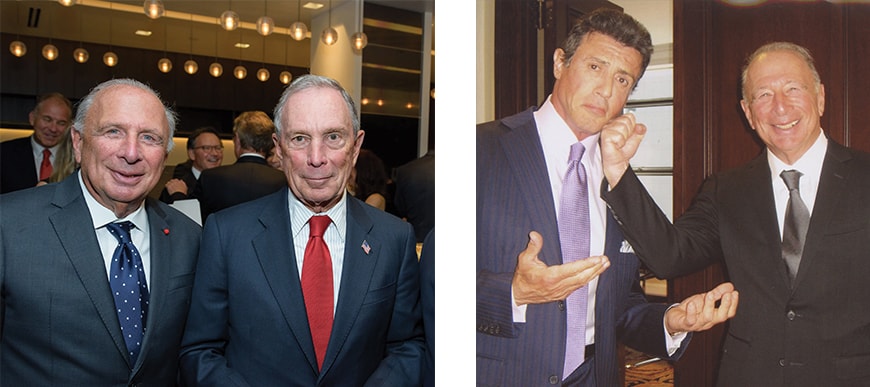
When eventually Ronny went to work for his grandfather and uncle at Eagle Clothes, things didn’t start well. “They treated me like I was the dumbest kid in the world. My uncle would say things like ‘Who invited you to this meeting? Get out!’ The hot item at the time was a black mohair suit: we’d sell 5,000 to 10,000 units in a fall season. So one day a retail customer called asking for this popular suit in a 40 regular. Now the one thing I’d learned was that if a retailer called asking for a specific suit in a specific size, it was because he had a customer right there wanting it. I told the retailer on the phone that we were out of 40 regular but I’d see if I could steal one for him from another order. I got right back to him and told him I managed to find one. He was delighted and the next time he came to New York, he wanted to meet the amazing kid who miraculously got him the sold-out suit he needed. I loved the attention and started doing this regularly. Eventually my uncle called me into his office, demanding to know how come so many retailers were asking to meet me. I told him what I’d been doing and finally, he gave me a little credit for being somewhat smart.”
Among the lessons Ronny learned from his dad: the value of proper attire. “My father worked long hours (which is why my mother pushed me toward manufacturing rather than retailing) so when he’d finally get home at 7:30, he’d sit down to dinner in his jacket and tie. We always waited for him, and out of respect, I always wore a shirt and tie. It’s stayed with me through the years and I still insist that my salesmen dress the part: in a nice suit and tie and properly groomed. My father was fastidious: if a salesman showed up at his store inappropriately dressed, he’d ask him to leave and come back in proper clothes!”
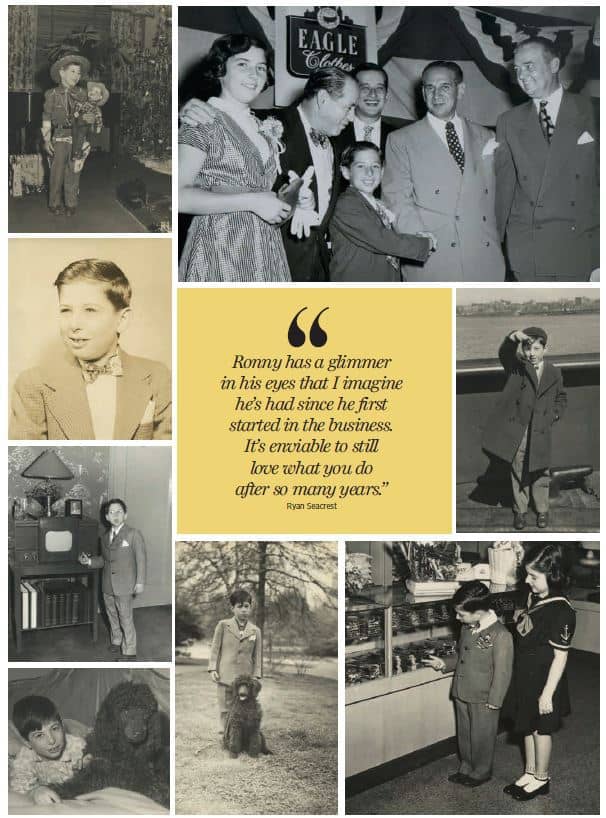
Industry insiders agree that Ronny can write the book on relationship building (although he admires Jack Mitchell for doing it first). “When a customer comes into your showroom, treat him like a guest in your home. Greet him warmly, stay with him throughout the visit, walk him to the elevator and wait there until he leaves. Then stay in touch! Don’t make him crazy with too many phone calls, but don’t call only when you want an order (he’ll figure it out and eventually stop taking your calls). Maybe call him with a book recommendation (better yet, send him the book!) or an article he might find valuable. Take the initiative, go the extra mile (whatever it takes) and just make it happen.”
Among the myriad examples of making it happen, Ronny remembers all the years he tried in vain to get an order out of Dayton Hudson. “Then at some point, one of their vendors disappointed them and they desperately needed 2,000 suits in two weeks. I called Claire, our COO, and she immediately said, ‘You’ve got it!’ So we made them 2,000 suits in Montreal, shipped them within two weeks and ultimately became their biggest supplier. I’ve always believed that you have to earn your business every day; you can’t ever give anyone a chance to take it away from you. And these are the lessons I’ve tried to teach my salesmen.”
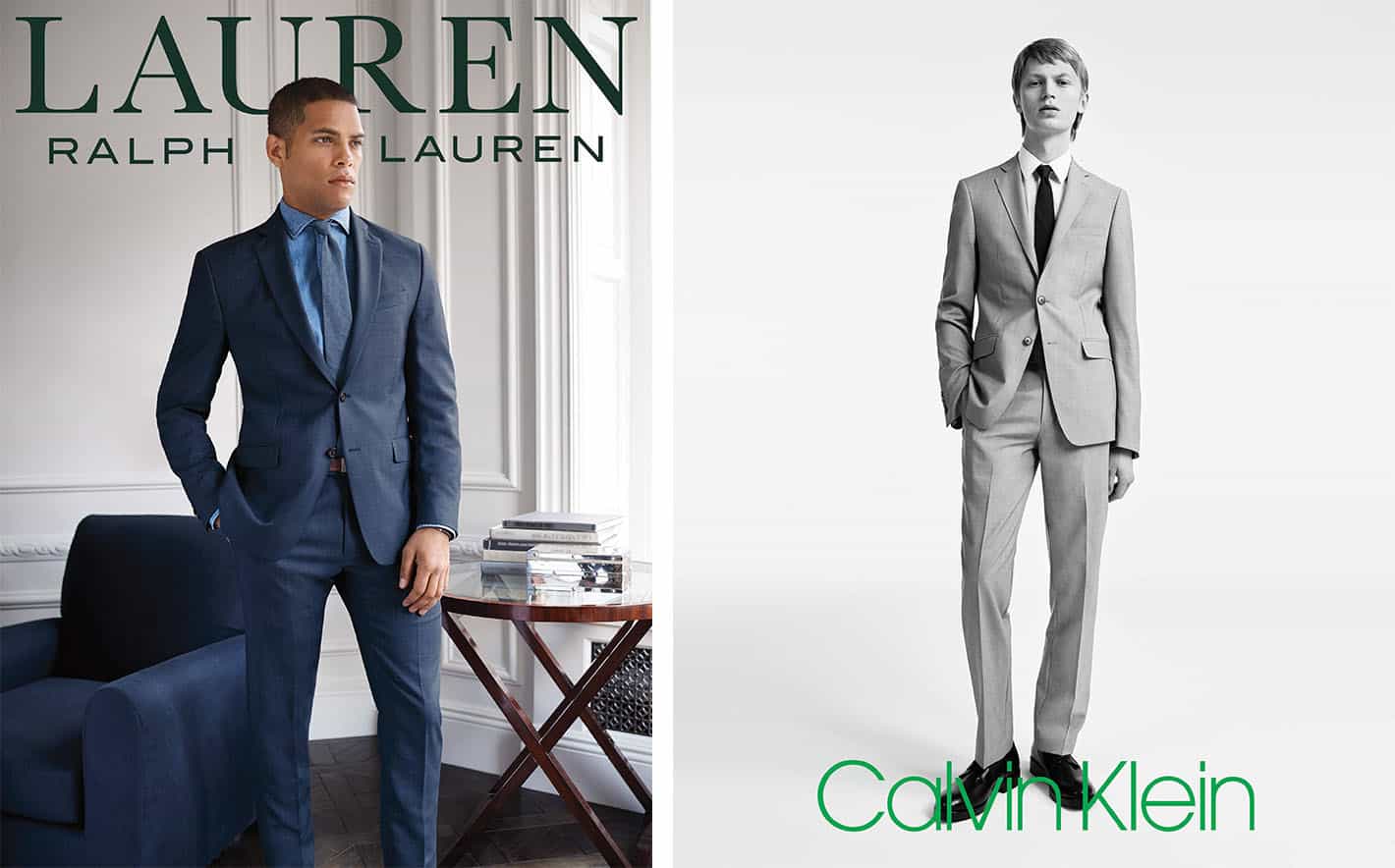
With more than two dozen top licenses (mostly American designers and celebrities including Calvin, Ralph, Tommy, Michael Kors, John Varvatos, Todd Snyder, Hart Schaffner Marx, Sean John, Ryan Seacrest, IZOD, Michael Strahan) and a strong private label business, there’s no doubt that Peerless already owns a disproportionate share of the U.S. clothing market. The two Peerless-owned brands, Tallia Orange (fashion) and TalioRED (luxury fabrics at great value), are also growing rapidly.
“The hardest part is ensuring that each line has a distinct point of view,” Ronny explains. “Within all the collections, there’s not one repeat swatch. It’s a full-time commitment but I believe that each collection must be 100-percent exclusive.” (Editor’s note: you can’t walk into Ronny’s office without finding piles of swatches on his desk; his associates say he still gets as excited about selecting swatches as he did 25 years ago.)
One of Ronny’s first suit licenses was Kasper, a relatively successful women’s wear designer who was virtually unknown in men’s. “Truthfully, I had no interest in acquiring this label—all I could think of was a friendly ghost. But Glen Schanen and Jim Edelman from Macy’s strolled into my office one day, encouraging me to take the license (and casually mentioning that Kasper was Macy’s CEO Allen Questrom’s best friend). Of course I wanted this fantastic label; I told them yes without hesitation.”
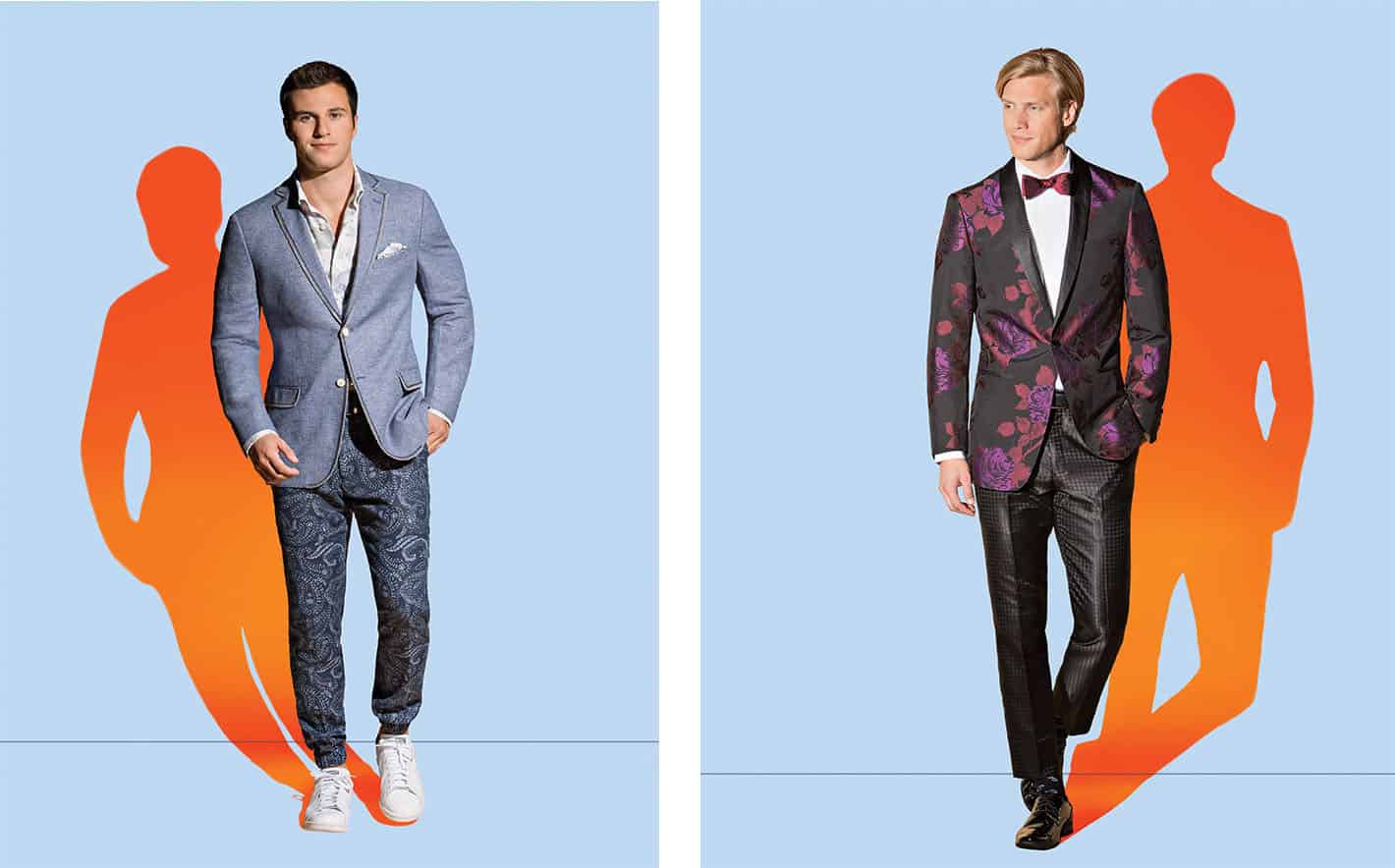
Postscript: Before signing the contract, Ronny and Alvin Segal went to meet with the team at Chaps. “One thing about Mr. Segal,” Ronny notes, “is that he always tells you exactly what’s on his mind, whether or not you want to hear it. He happened to be wearing a modern, Hugo Boss-style suit that day and had no trouble telling the team at Chaps: ‘Who wants Chaps? This is what the young customer wants! We can make you beautiful suits that look like this!’ I was sure we’d lose the deal immediately.”
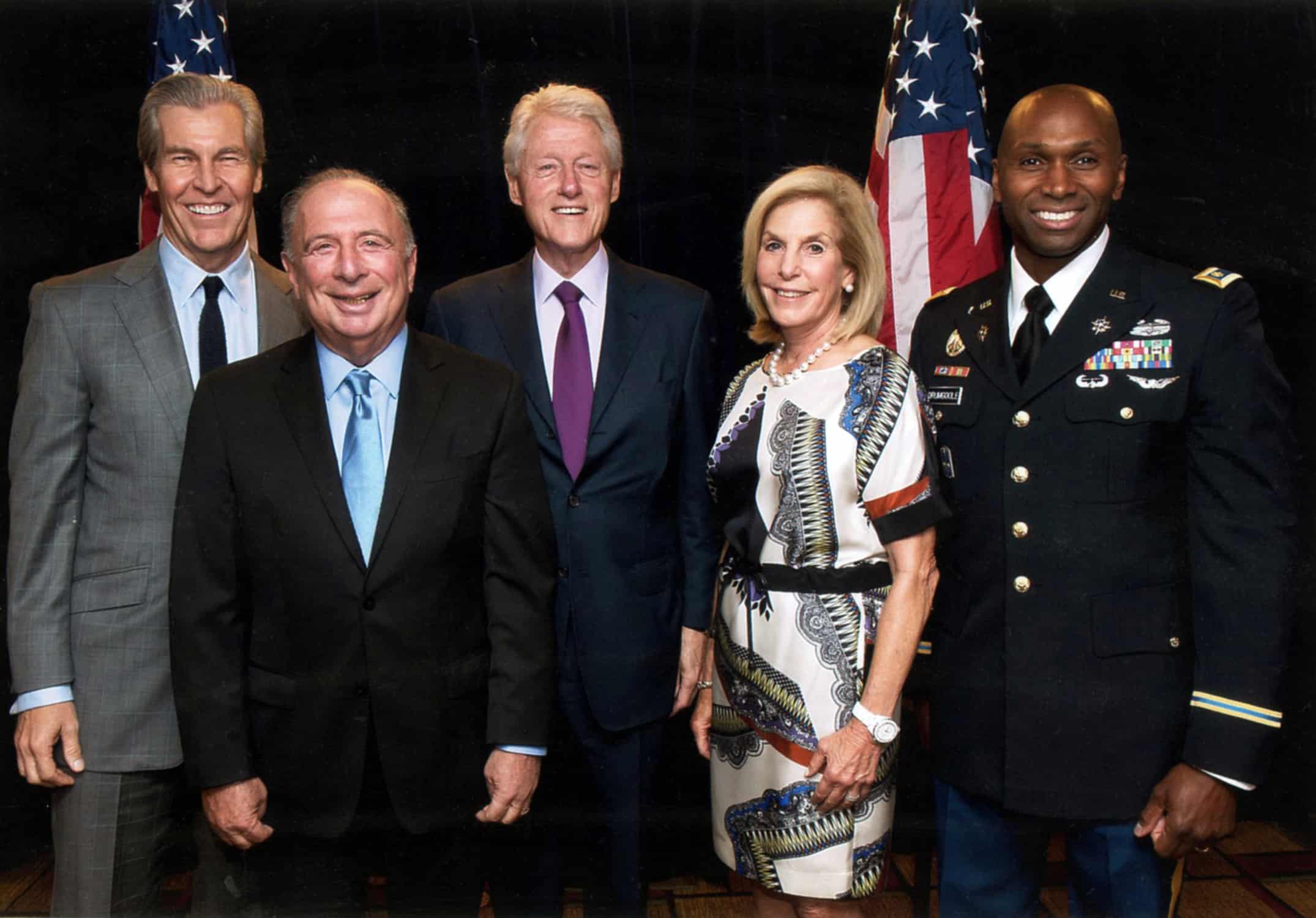
Ronny also expresses tremendous gratitude for Segal’s contributions to numerous charities, a priority they both share. “I can be generous because Alvin Segal is generous. And more than anything else, I believe we’re here on Earth to help people. Years ago, companies used to help other companies that were struggling. If a retailer got in trouble, manufacturers would take goods back or give them extra terms or even send in their controllers to help out.
“Today, no one seems to care, which is a real shame because we’ve lost a lot of great stores,” he adds. “There was a time when Peerless had almost 3,000 accounts; today it’s a few hundred. I do believe, however, that conventional stores will survive. They’ll be different, but they’ll survive.”
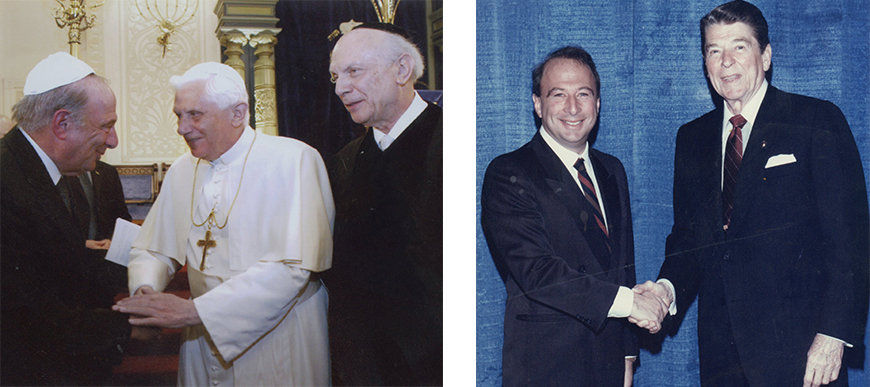
What can’t be learned, however, is intrinsic character, values that come from within. “The essence of Ronny is his compassion and playfulness,” says his wife Poppy, who knows him better than anyone. “Although his work has always been paramount, Ronny will stop everything to help a friend. He gives personal and business advice, medical information and referrals, and even lends office space for anyone out of a job.
“His lightheartedness has been an important contributing factor to our wonderful life together,” she continues. “Ronny always turns the mundane into fun and has a positive attitude toward life, regardless of the stresses we may face. He is the most loving, empathetic, supportive husband, father, grandfather and friend—I’m the luckiest woman in the world to be married to him.”
